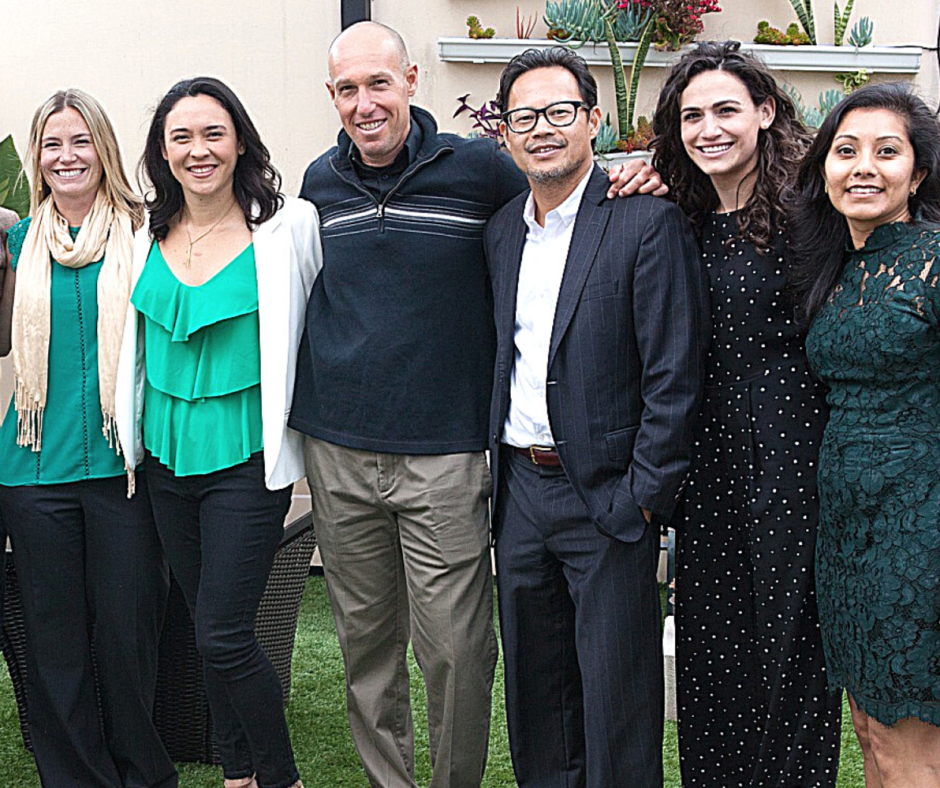How B Corp Mission Driven Finance Plans to Advance Anti-Racism Work and Help Shift the Financial System

By David Lynn, co-founder and CEO of Mission Driven Finance, an impact investment firm and Certified B Corporation
How many times have you heard a White friend ask this recently: “I’m not racist, but what else can I do?”
My honest answer: A lot.
What we’ve been doing for over 50 years ain’t cutting it.
The best anti-racism advice I’ve gotten so far is from my teammate Louise Jordan:
Whatever we do, we have to stop re-creating the same narrative.
In 50 years, we’ve collectively failed to close the racial wealth gap. We’ve failed to close the education achievement gap. We’ve failed to close the health gap.
Unfortunately, many of the actions we White people take end up reinforcing existing power dynamics and telling the same, false story — that Black people and people of color have inherent risk and problems and that White people must “save” them from themselves.
As a White man, I can, should and will listen to my Black, Indigenous, and People of Color colleagues and neighbors. But listening alone is not enough. Dangerous “race-neutral” policies aren’t the answer. We need to recognize our own privilege and get to work leveling the field.
We must do more.
In acknowledging my own White privilege, I share my personal journey as a White male:
- College education where I didn’t have to take on debt, due to privilege of my family’s financial ability to pay my full tuition.
- A career in traditional investment management, much of it for a family office that fortunately is very philanthropic, a position I got due to privilege of family connections and growing up attending board meetings with my father, absorbing and learning how finance works in America.
- Active in philanthropic and nonprofit circles, access which I got due to privilege of that family office job and my family’s donor-advised fund.
Over time, it became more and more apparent to me that if we want to accelerate social change, philanthropy is not enough. Government capital is not enough. We need to find ways to harness the gargantuan amounts of private capital to invest in community. So in 2016, Lauren Grattan and I started Mission Driven Finance with the sole intent of moving capital to where it normally doesn’t flow but should.
I was able to co-found Mission Driven Finance due to privilege. Owning a house in Southern California and access to personal networks of other privileged people gave us the initial capital to give our Certified B Corporation a shot. We could take the risk because it is highly unlikely we or our families will end up homeless or without food on the table.

I’ll acknowledge as well that I probably could have started an investment firm without my co-founder Lauren, a mixed-race woman of color, though it wouldn’t have grown the way it has. With her leading our company culture in a way I couldn’t, along with immediately adding more people with intentionally diverse viewpoints to our investment committee, we have created a strength we wouldn’t have otherwise. But the diversity we know to be a strength has not been met without struggles as a “not-normal-looking” financial firm (where normal = pale, male, and stale). I’ve seen firsthand how many middle-aged White men assume Lauren is my secretary or that she isn’t critical to the conversation or the success of our investments.

You could say I was in the right places at the right times, but I recognize that I could access those places in large part because of where I grew up; because of the boost of my father’s career and family connections; because of my early exposure to and resulting comfort with markets and commercial finance; and because my face is the kind that employers, bankers, and other partners expected. That recognition of what privilege has afforded me is step one. Step two is actively working to “spend down my privilege” (with credit to Brittany Packnett Cunningham). So that’s what I, a White male CEO, am committing to doing: embrace Louise’s challenge to change the narrative and actively encourage the redistribution of power.
We can do more.
As a company built to be a deliberately developmental organization, Mission Driven Finance is committed to continuously uncovering our own blind spots as individuals, as investors, and as a team, and developing ways to get better. This applies to finding innovative ways to raise and deploy capital, as well as identifying how we might be perpetuating inequitable practices in finance—many forms of which are rooted in racism.
We know that the norm isn’t working. The only way we will gut the narrative of the current financial system is if we actively, intentionally reject the norm.
From Mission Driven Finance’s first day as a commercial lender, we pledged to never seek personal credit scores, personal guarantees, personal tax returns, personal background checks, or personal collateral. This is a regular point of contention with investors and partners who are used to protecting against perceived risk—but it’s not up for discussion.
We do not believe that race is a reasonable proxy for value or risk, and so we refuse to use algorithms that reinforce racial biases just because that’s the norm.
This year, we launched the Community Finance Fellowship, to begin to change the face of finance to reflect the diversity of our communities. Five intrepid souls joined our team as full-time paid employees this March, just as the pandemic was unfolding. We couldn’t predict the future, but we knew we would need people on our team who could help us understand how to connect with Black, Indigenous, and other communities of color. During the COVID-19 pandemic, reaching these communities is more critical than ever as the system once again failed them.
We didn’t start the fellowship to teach. We started it to learn. I cannot and should not design the solutions for Black, Indigenous, and People of Color (BIPOC). My role is to build an organization that co-creates with BIPOC partners the structures that let capital — and power — flow.

We will do more.
“I can’t believe what you say because I see what you do.” — James Baldwin
A few weeks ago, Tiffani Ashley Bell summarized the simple call to action for anti-racist investors: “Make the hire, send the wire.”
We’re doing fairly well on the hiring. As of this writing, our team is 61% People of Color and 67% women, for a total of 83% non-White-male. This diversity is reflected in our leadership, our investment committee, and our staff.
But we have work to do on the wiring. Even with our intentional approach, our core fund Advance has only sent 36% of our capital to organizations owned or led by People of Color. While we’ve done some things well, we’ve also been too passive in confronting this discrepancy. No more excuses. We must invest in the narrative we want and get to a majority-BIPOC portfolio. That’s the minimum threshold we can consider success in the San Diego region.
Recognizing that there is much more we can do to be actively anti-racist, we are publicly making these commitments. We will:
Vote with our dollars.
We’re committed to investing in more BIPOC borrowers; to advancing inclusive hiring, compensation, and growth; to finding retirement plan options that don’t counteract racial justice; to using our relatively small discretionary budget to reinforce our values by buying from BIPOC vendors and women, our portfolio companies, B Corps, and small local businesses.
Invest company time with a racial equity lens.
Every person on our team has the authority to spend time in the community to listen and to source dealflow. But that often feels abstract, and abstract is rarely accountable. Instead of resting on our open-door referrals, we are exploring how, especially in a pandemic, we can show up and build more trusting ties with Black communities and other communities of color. Our overarching mission is to reconnect capital with community and empower communities of color to use finance as a tool for change. We will increase our allocation and offers of time to develop the trust and relationships that build an engaged pipeline of potential borrowers. Our marketing and communications team will uplift overlooked and underestimated BIPOC perspectives. And all of us will show up with a renewed sense of equity and welcoming, taking on much of the labor of following up, scheduling, and maintaining momentum.
Continuously enhance a team culture of belonging.
Our team is intentionally diverse because we firmly believe we are stronger together, we make better decisions, and we better reflect and connect with our community. But we may not always hear all voices. We commit to interrogating our internal practices—including meeting formats, agendas, and facilitation norms—so that all voices are comfortable contributing and are heard.
Use our voice to advance anti-racism.
We will use any influence we have in our own circles to advance anti-racist decisions. We can push from a place of power and privilege and point out inequities in investor spaces, and won’t just brush off the “drunk uncle” statements. We will challenge our banking partners and investees to identify and eliminate systems that have perpetuated discriminatory or inequitable outcomes. We will continue to have difficult and uncomfortable conversations with each other, colleagues, friends, and families, to educate ourselves on anti-racism and push on others to do the same.
Keep learning.
Anti-racism is a daily practice, not a destination. As a deliberately developmental organization, the biggest commitment we make is to channel Maya Angelou, and “do the best you can until you know better. Then, when you know better, do better.” B Lab’s Inclusive Economy Challenge gave us a fantastic list to work on, and we’ve signed on to the Racial Justice Investing statement and call to action, but we welcome more suggestions to keep doing better.
In the coming weeks, Lauren and I will work with our team to co-design measurable actions to hold ourselves accountable to these broad commitments.
How will we know when we’ve done enough?
For me and for Mission Driven Finance, the answer is simple:
When our investors come from the same communities we strive to support, then we will have redistributed power and changed the narrative. Until then, we haven’t done enough.
A version of this article was originally published by Mission Driven Finance.
B The Change gathers and shares the voices from within the movement of people using business as a force for good and the community of Certified B Corporations. The opinions expressed do not necessarily reflect those of the nonprofit B Lab.

Why It’s Time to Recognize My Privilege and Work to Level the Field was originally published in B The Change on Medium, where people are continuing the conversation by highlighting and responding to this story.